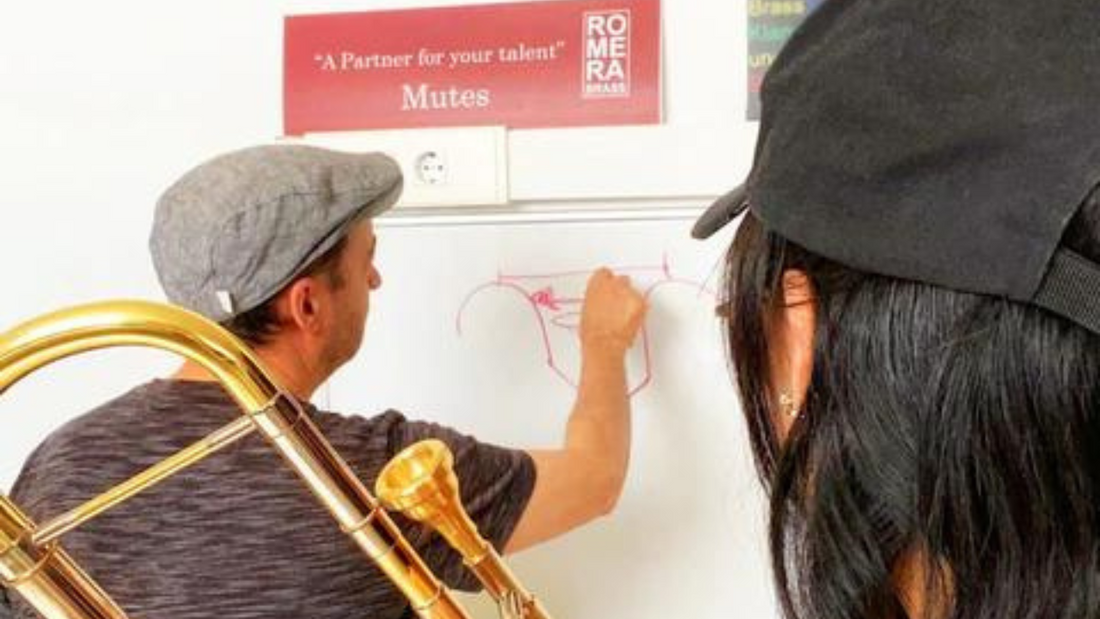
5. Learning and constant improvement
Share
Today I want to tell you an anecdote.
Note: If someone identifies with this story, don't worry because it taught me a great lesson and I'm very grateful!
Some time ago a musician came to my workshop to make him a custom mouthpiece. I had several problems, the most obvious, and which had repercussions in many aspects, was lack of air: I was taking little air and I think I was pulling even less and with little pressure. This affects almost everything when playing. The articulation and the dive were slow and his flexibility was very difficult.
We started working, but since we couldn't solve everything with the mouthpiece, we focused on solving the problem of lack of air:
We closed air passages, we tried to fit the pressure that he made with the resistance of the mouthpiece and the instrument and mission accomplished! we improved the articulation and the sound was bigger since the little air that was thrown out was converted into sound. So all good and the musician happy.
We arranged for another day so that I could finish the mouthpiece, give it a silver bath, etc., so far everything is normal, but here comes the good part!
The day we met to pick up his mouthpiece, he showed up with another friend who also played the trombone. As I handed him the mouthpiece, he passed it to his friend to play and told me he wanted to hear what his mouthpiece sounded like from outside.
For a moment I was a little surprised, and why not say it, somewhat perplexed! Do I make a custom mouthpiece for one musician and bring another to try it out? To see how his mouthpiece sounded from outside?
The friend, unlike the musician for whom I made the mouthpiece, threw out a lot of air when playing, and logically the mouthpiece didn't work for him!
I was able to redirect the situation by explaining the reasons why that mouthpiece did not work well for him, since it had been made to measure for his friend who drew little air, etc., etc., etc. But I'll take the anecdote that we were working with the musician (the one who drew little air) for about two hours and he didn't understand anything we were doing.
After a few days of reflection… The first thing I did was buy a blackboard and hang it on the wall of the workshop, so that from then on I could explain to the musician in detail what we are doing to improve his mouthpiece.
A new lesson that leads me to a Japanese word that I really like: “KAIZEN”.
改 (kai) means “change” or “the act of making amends.”
善 (zen) means "good" or "beneficial."
The translation is somewhat complicated but can be interpreted as “change for the better” O "steady improvement".
I don't plan to stop learning and improving day after day, and if I can help you along the way, it will be mission accomplished! I hope you don't stop learning for a single day either.
Friends, lots of music and KAIZEN
